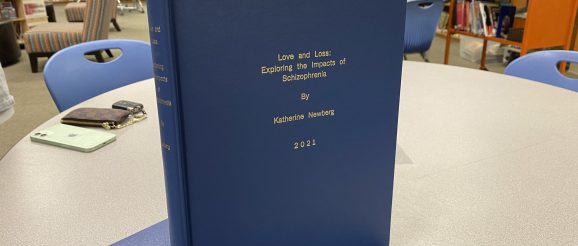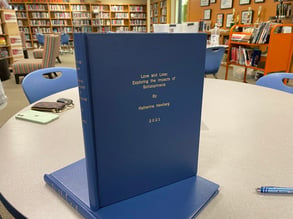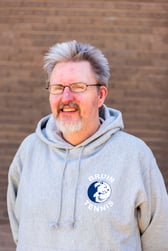Innovation in Education: The PA Podcast – Social Science Chair Bill Topich and the PA Senior Thesis Project

This is Innovation in Education: the PA Podcast where we share stories of how PA is inspiring students to explore, create contribute and achieve and I’m very thrilled about my guest today. My guest is Bill Topich, Head of the Social Science Department here at PA.
Welcome Bill and thank you for joining us.
BILL: It’s my pleasure. I’m thrilled to be sharing some of our success stories with our audience.jpg?width=200&name=Topich_William_319%20(1).jpg) tonight.
tonight.
MATT: Bill, tell us a little about yourself: How long you been a PA? What your role is here as the Social Science Department Chair.
BILL: Well, I’m in my 27th year at Pulaski Academy, and I’m Chair of the Social Science Department, of course, but as with many of us on staff, I wear numerous hats – head of the department, as well as coaching the tennis teams in middle and upper school and also supervising all of the senior thesis projects.
I’ve had two daughters that have graduated from here and I often say this is absolutely a great place to raise a family. I tell everyone in the community this – I was a parent here for 20 years and my daughters are gainfully employed and both living on different coasts. One on the west coast and one on the east coast. So, the PA experience really helped to mold who they are today.
MATT: You mentioned the Senior Thesis Class, but what other classes are you teaching besides that?
BILL: I also teach the Advanced Placement Comparative Politics course, which I’m teaching this year. I teach the Honors International Studies Seminar, which kind of goes along with some of my research interest on global terrorism and in some of my writings. I’ve been the Model United Nations Advisor for the past 26 years. And this year, I’m being helped by Rachel Primm in the upper school, as well as Lindsay Baker, who is resurrected our middle school program this year.
MATT: That’s great! One of the things I wanted to really kind of focus in on today is your work with the thesis project. Would you mind sharing a little bit about the history of that project? What it is? What it looks like? What the scope of it is?
BILL: Well, this is our 19th year for senior thesis projects. I felt that our students were not being challenged in the writing and research area enough back in 2002. I had so many gifted writers and so the following year, I shared the idea with Cheryl Watts, our college counselor at the time. And we decided to see if we had interest in a research-based class where students would work on a manuscript during the entire year.
 We felt like this should be an honors credit course. The manuscript should be at least 50 pages in length, but most of them far exceed that and actually, we’ve had a few projects that have been in excess of 130 pages in length. In addition to that, the students hone their oral communication skills because they actually have to do a formal thesis defense in late April in front of members of the faculty that serve on their committee. So they’re learning the research skills, the writing skills, sometimes interview skills. And then, of course, they will have the defense at the end of the project.
We felt like this should be an honors credit course. The manuscript should be at least 50 pages in length, but most of them far exceed that and actually, we’ve had a few projects that have been in excess of 130 pages in length. In addition to that, the students hone their oral communication skills because they actually have to do a formal thesis defense in late April in front of members of the faculty that serve on their committee. So they’re learning the research skills, the writing skills, sometimes interview skills. And then, of course, they will have the defense at the end of the project.
MATT: This is my second committee to be on, which is an amazing process, but talk a little bit about kind of the process the student goes through, because many of them or really all of them have never written at this length. So I know you break the project up into chapters. But what does that kind of process look like?
BILL: Well, we first of all kind of brainstorm ideas even as early as spring of the junior year and we start to review some of the literature over the summer, before the school year starts. We usually do a storyboard project where we kind of schematically look at the project parameters on butcher paper and kind of map out the project.
It’s something that I picked up in my own writing experiences and so that the students have a clear direction that they want to take with the projects and kind of getting the scope and sequence down. And I think that really helps with their organization and time management skills. You know, people talk about how the finished projects are awesome, but what I think really is most important about thesis project is that they learn how to manage a major project over an eight month period. And that’s honestly a skill that will take them beyond the doors of Pulaski Academy and into the university and actually into the workforce in today’s competitive environment.
MATT: Some of the projects I’ve had a chance to see really range in topics, but are the topics you find the students selecting personal topics or ones that they’re interested in and know a lot about?
you find the students selecting personal topics or ones that they’re interested in and know a lot about?
BILL: I always tell the students there’s two ways to approach this – one would be to do a topic that you might feel as marketable to put on your college application, which is a good idea.
However, I always tell them to find something they’re passionate about and you will find it much more enjoyable to do something you really are invested in. Some of our projects have been quite serious – everything from eating disorders to domestic violence and sex trafficking. Or topics that are quite enjoyable and related to music, pop culture and movies. Probably one of my favorite projects was Wells Thompson. Several years ago he looked at the impact of vampires and zombies on American pop culture.
You can hear our entire conversation with Bill Topich at www.papodcast.net. You’ll find this episode and all of our Innovation in Education episodes on iTunes and Spotify.
If you would like more information about the 2021 senior thesis students and projects, visit our project landing page HERE.
To learn more about Pulaski Academy, visit the PA Virtual Admissions Center at www.thepavac.com.
